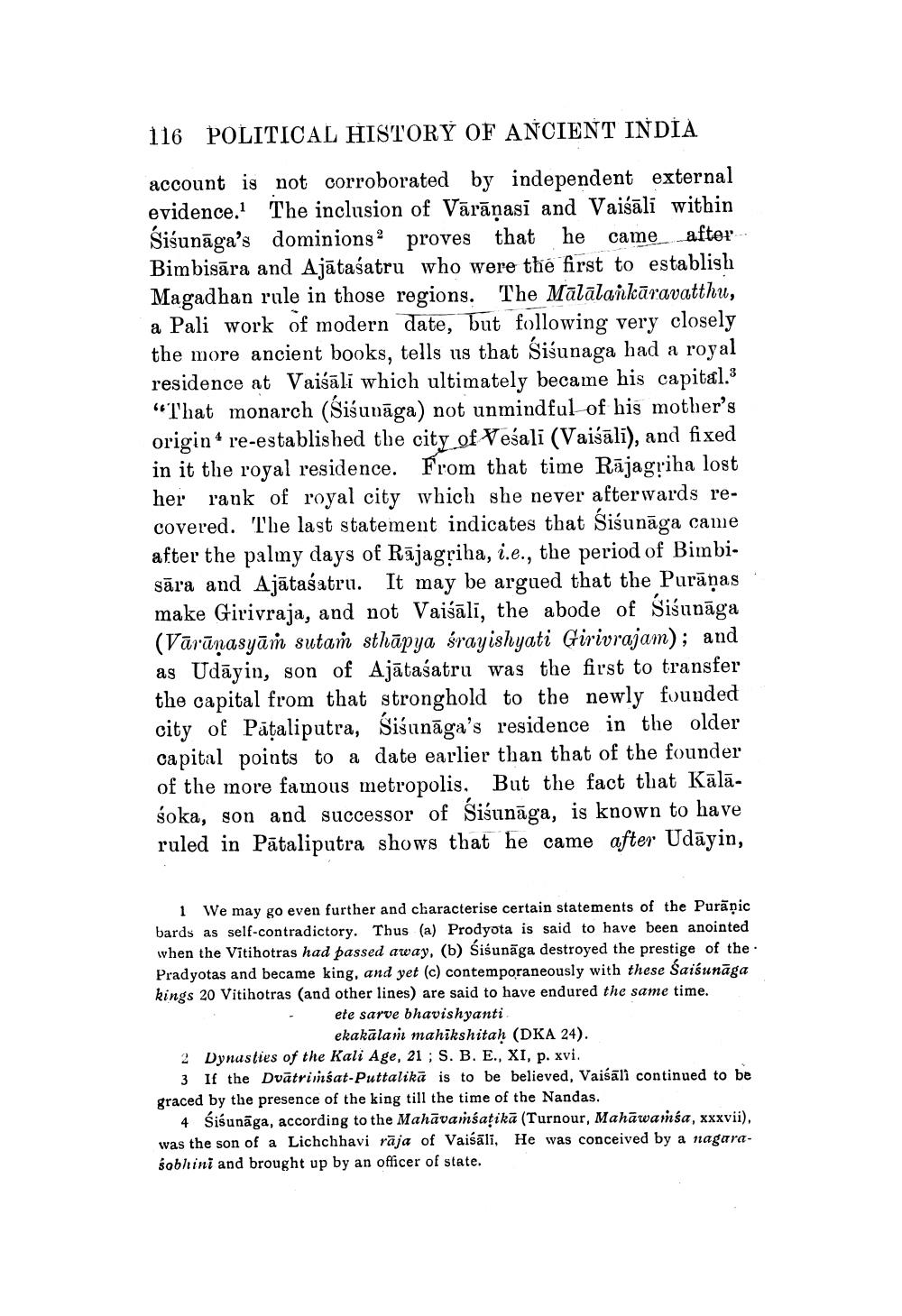________________
116 POLITICAL HISTORY OF ANCIENT INDÍA account is not corroborated by independent external evidence. The inclusion of Vārānasi and Vaiśāli within Śiśunāga’s dominions? proves that he came after Bimbisāra and Ajātaśatru who were the first to establish Magadhan rule in those regions. The Mālālankāravatthu, a Pali work of modern date, but following very closely the more ancient books, tells us that Śišunaga had a royal residence at Vaiśāli which ultimately became his capital.3 "That monarch (Śišunāga) not unmindful of his mother's origin* re-established the city of Veśali (Vaiśālī), and fixed in it the royal residence. From that time Rājagưiha lost her rank of royal city which she never afterwards recovered. The last statement indicates that śiśunāga came after the palmy days of Rājagļiha, i.e., the period of Bimbisāra and Ajātaśatru. It may be argued that the Purāņas make Girivraja, and not Vaišāli, the abode of Siśunāga (Vārānasyāṁ sutam sthāpya śrayishyati Girivrajam); and as Udāyin, son of Ajātaśatru was the first to transfer the capital from that stronghold to the newly founded city of Pāțaliputra, Siśunāga's residence in the older capital points to a date earlier than that of the founder of the more famous metropolis. But the fact that Kālāśoka, son and successor of Śiśunāga, is known to have ruled in Pātaliputra shows that he came after Udāyin,
1 We may go even further and characterise certain statements of the Purānic bards as self-contradictory. Thus (a) Prodyota is said to have been anointed when the Vitihotras had passed away, (b) Siśunāga destroyed the prestige of the Pradyotas and became king, and yet (c) contemporaneously with these Saisunāga kings 20 Vitihotras (and other lines) are said to have endured the same time.
- ete sarve bhavishyanti
ekakāları mahikshitah (DKA 24). 2 Dynasties of the Kali Age, 21 ; S. B. E., XI, p. xvi.
3 If the Dvātrimśat-Puttalikā is to be believed, Vaiśāli continued to be graced by the presence of the king till the time of the Nandas.
4 Sisunāga, according to the Mahāvamśaţikā (Turnour, Mahāwansa, xxxvii), was the son of a Lichchhavi rāja of Vaiśāli, He was conceived by a nagarasobhini and brought up by an officer of state.




